How old is too old to join Ireland's police force?
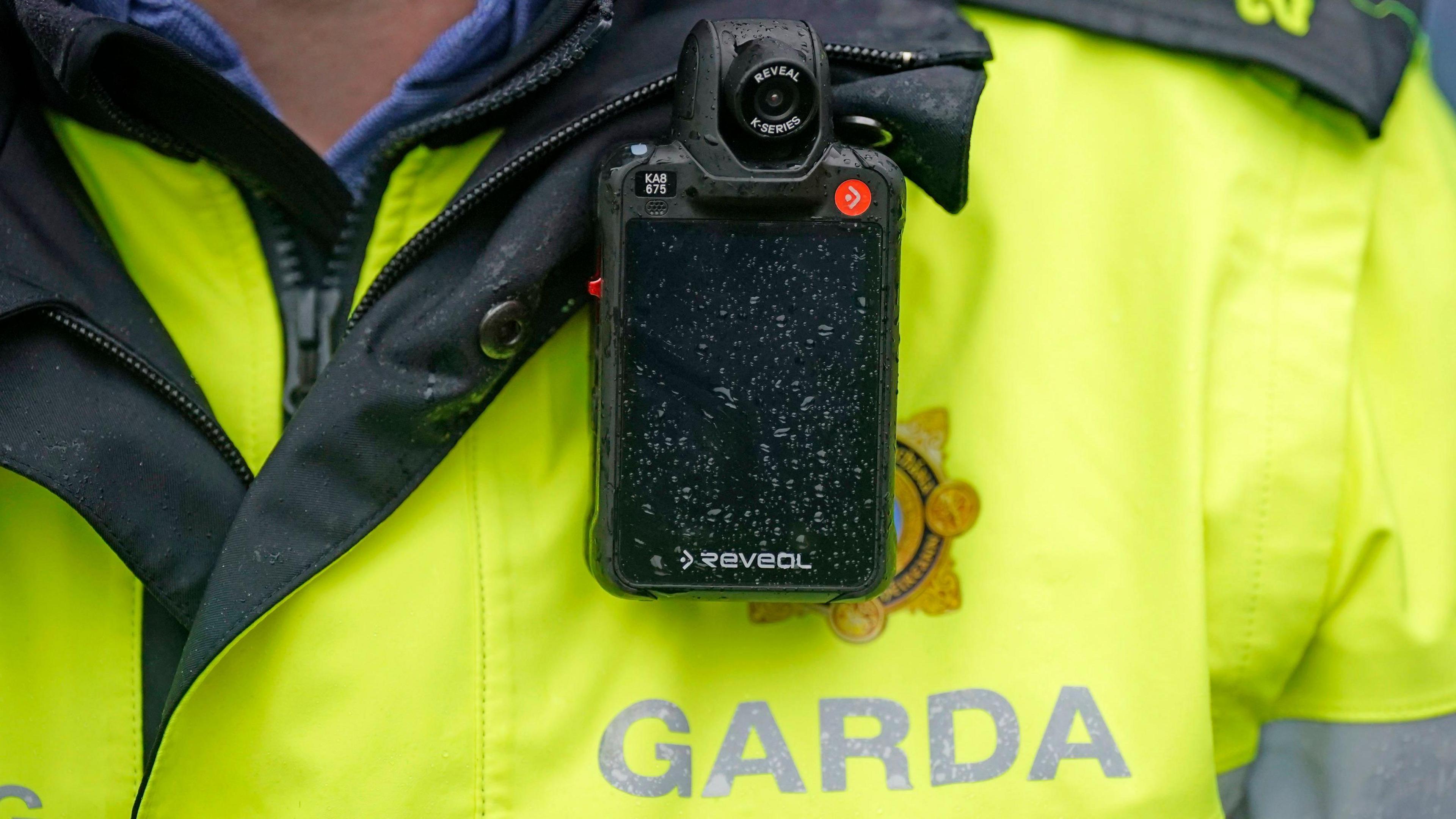
An Garda Síochána previously would not accept recruits over the age of 35
At a glance
Ireland's police force has raised its maximum age limit for recruits to 50
An Garda Síochána, which needs 1,000 new officers to tackle staff shortages, recently lost an age discrimination case brought by two men who were too old to apply
Forces such as the Police Service of Northern Ireland and Metropolitan Police already allow candidates in their 50s to apply
However, a leading member of an officer organisation says he does not believe the move will solve recruitment issues
- Published
The Irish police force, An Garda Síochána, announced this week it is raising its upper age limit for recruits from 35 to 50.
People on the cusp of half a century can now compete for a place at the Garda College, alongside candidates as young as 18.
It follows a legal case taken by two men who successfully claimed they were victims of age discrimination as they could not apply to join after the age of 35.
But the rule change also comes amid an ongoing police shortage - the force recently failed to meet a workforce target of 15,000 officers by 2021.
Its current membership is just more than 1,000 short of that target.
The move has faced opposition in the past, notably from the head of An Garda Síochána, Commissioner Drew Harris, who argued the age limit was necessary to ensure officers are physically able for the job.
However, the low cut-off point was out of step with other nearby forces - the Police Service of Northern Ireland (PSNI) accepts applications from candidates up to 57, while the Metropolitan Police's age limit is also "typically" 57.
Police Scotland has no upper age limit., external
Having recently celebrated his 50th birthday, County Donegal Garda (police officer) Brendan O'Connor would now be too old to apply for the job he has held since he was 24.
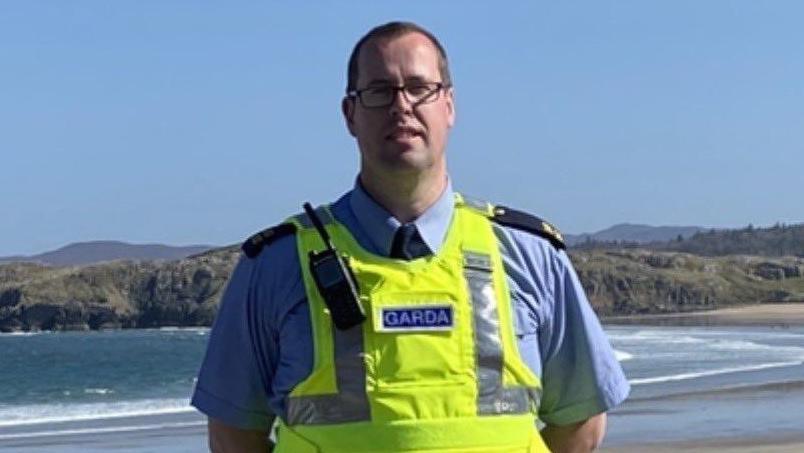
Brendan O'Connor works in the seaside town of Dunfanaghy, County Donegal
As well as being a front-line officer in Dunfanaghy, he is also president of the Garda Representatives Association (GRA), a union-like organisation which promotes the interests of rank-and-file officers.
Mr O'Connor told BBC News NI he does not object to widening the recruitment age bracket, but argued it will not fix staff shortages.
"We don't believe there's a pool of people in that age group who would be in a position financially, or with family commitments, to take that option," he said.
"Of course, anyone who meets the criteria and can do the job will be welcome, but we don't believe it's going to be any significant part of the solution to the problems we face."
He explained officer numbers are being depleted by early retirements and "an unprecedented level of resignations".
How much are Irish police officers paid?
The GRA president believes money will be the biggest deciding factor in how many middle-aged candidates apply.
"We imagine that most people in that age bracket may have financial commitments, may have dependents, may have mortgages, and will possibly be be seeing a significant drop in their income if they were to start training."
The starting salary for a newly qualified garda is just over €35,000 (£30,000) in a country with extremely high housing costs.
Recruits must also spend their first 36 weeks in the Garda College on a training allowance of €305 (£262) a week, well below minimum wage levels.
Justice Minister Helen McEntee said this "significantly increased", external payment followed the government's allocation of €2.3bn (£2bn) to the force for 2024 - its highest ever annual budget.
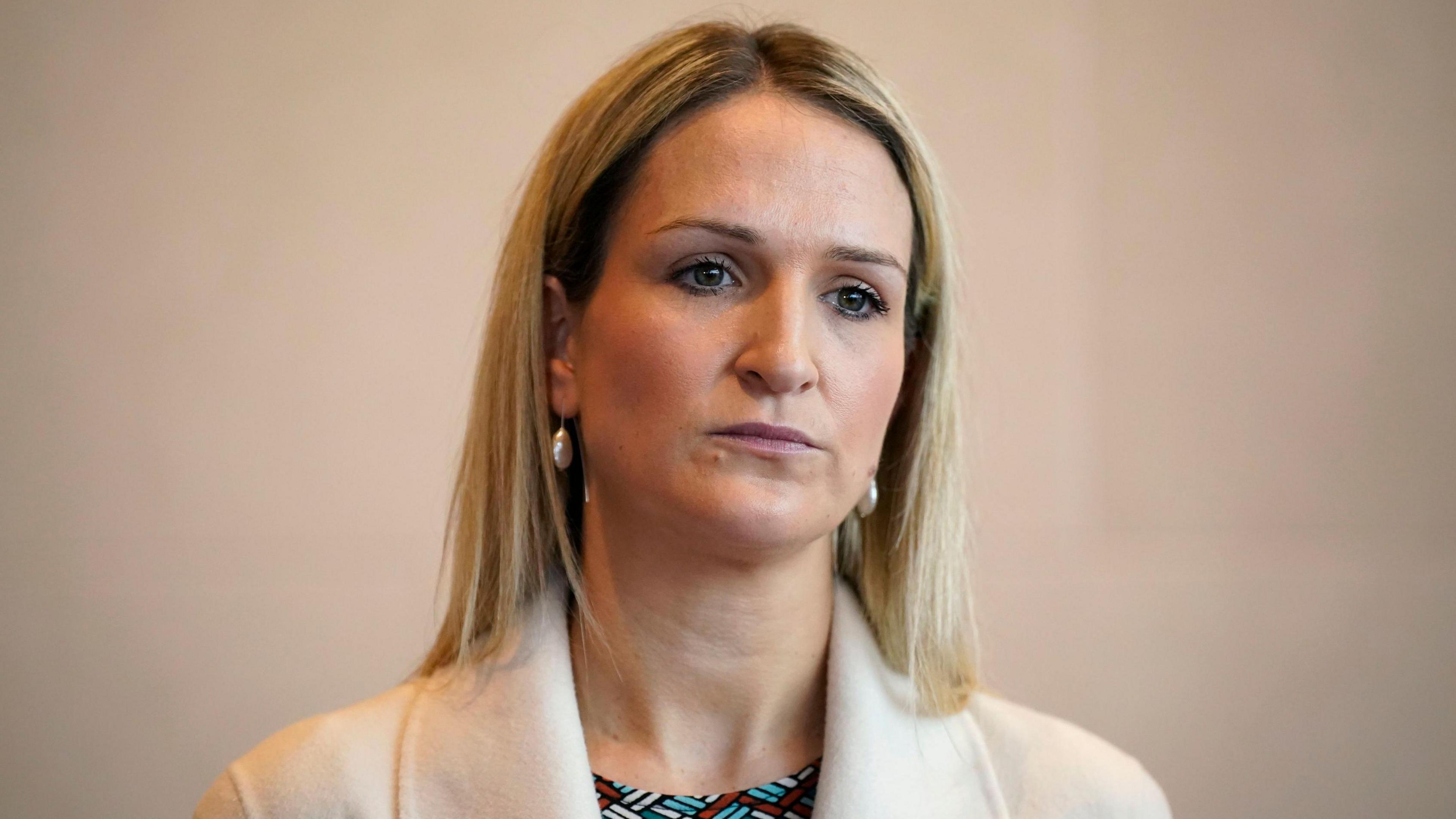
Minister Helen McEntee raised the training allowance from €184 to €305 a week
She added the age limit change would open policing "to a new cohort of people who will bring a range of different life and career experiences to the table".
But Mr O'Connor said the €305 allowance was "wholly inadequate," and a "paltry sum for anyone to try to exist on with the cost-of-living crisis".
In terms of the age limit, the GRA president accepts it is "part of the inevitable evolution of the workplace".
He also believes it may be linked to the successful age discrimination challenge.
That long-running battle was fought by Ronald Boyle, who was 48 when he sought to join the gardaí in 2005, and Brian Fitzpatrick who was 37 when he wanted to apply in 2007.
The pair won their case in 2020, external when the Workplace Relations Commission ruled they had been discriminated against on age grounds.
That ruling was appealed by the Department of Justice and the Garda Commissioner but that was rejected last year, external.
Mr Harris had defended the age limit of 35 as "essential", telling the Labour Court gardaí needed operational resilience to protect the people of Ireland.
He listed several duties requiring a high level of physical agility, pointing out the force is responsible for national security, counter terrorism and major crime investigation.
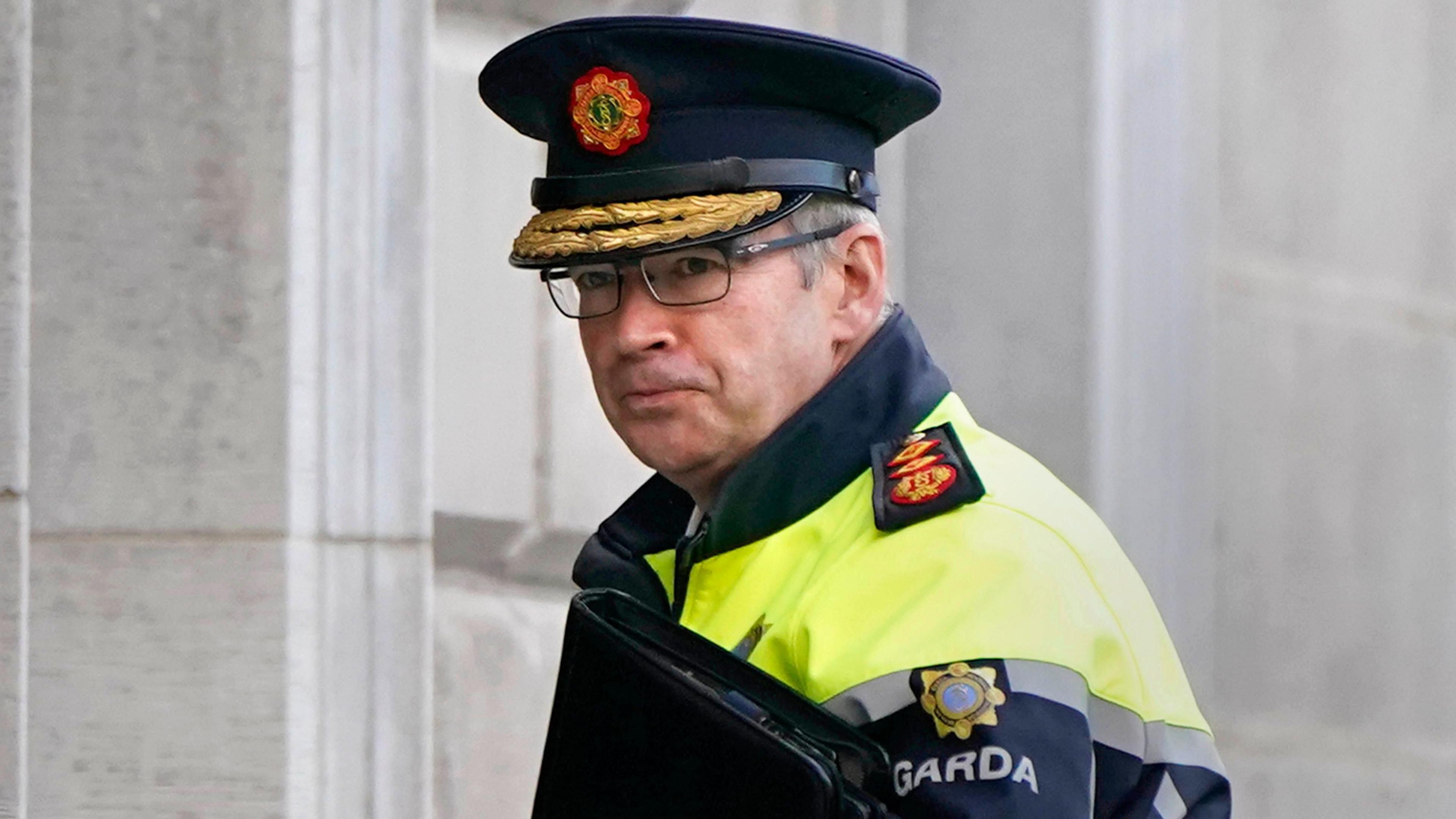
Garda Commissioner Drew Harris had previously argued against older recruits
The commissioner said officers required the stamina to be as alert at the end of a shift as they are at the start.
But Mr Boyle told the Labour Court he was still physically fit - one of his jobs was as a swimming instructor.
The court ruled in the men's favour, saying the age limit of 35 was "not appropriate or necessary".
But fitness is still essential for all front-line officers who may have to chase down suspects or quell a riot like the one that erupted in Dublin last November.
Under the new Garda regime, middle-aged recruits must pass a physical fitness test alongside their teenage competitors.
However, the tests are adjusted based on age and gender.
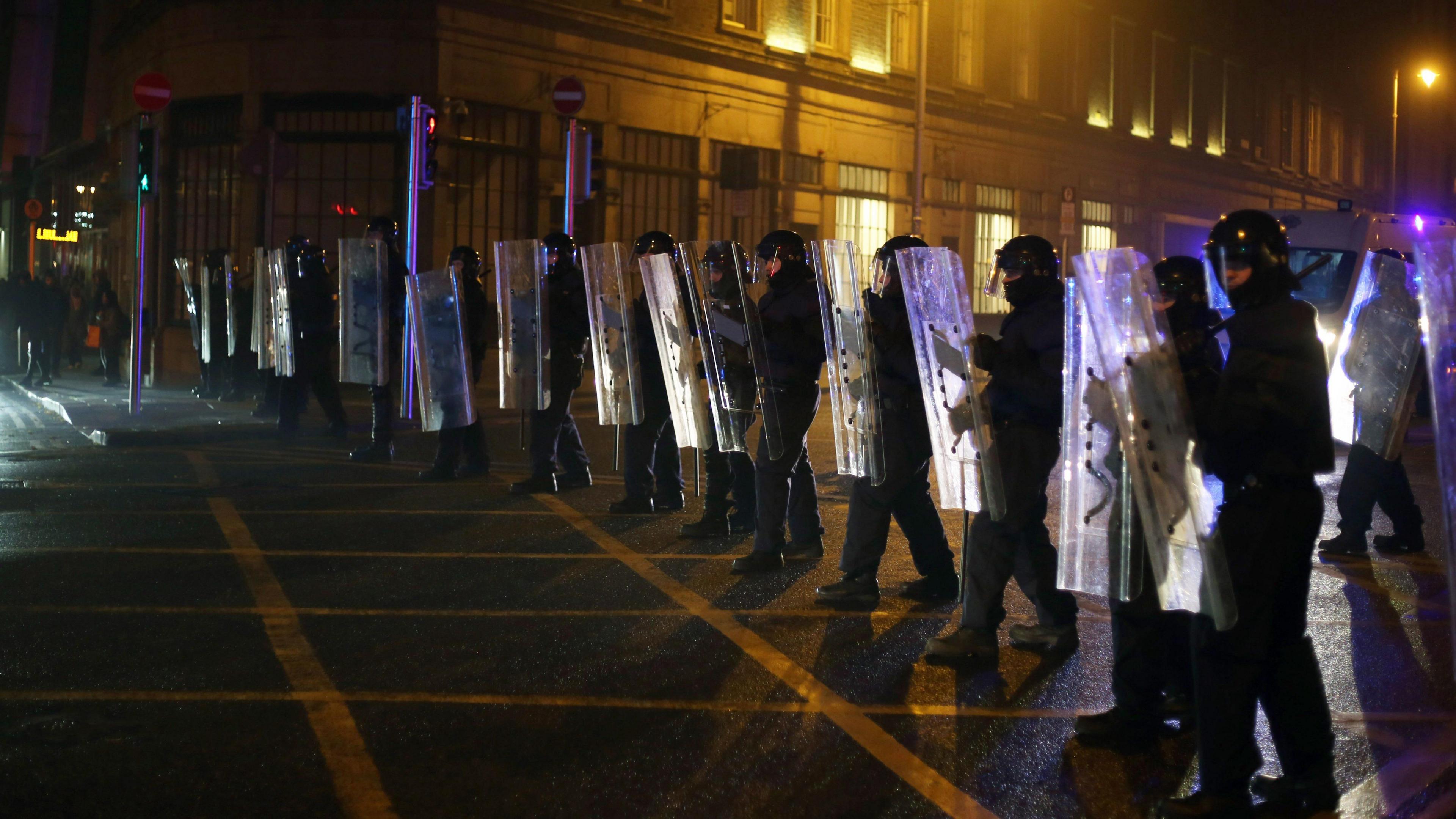
Last year's riot saw the biggest ever deployment of public order-trained gardaí
'More challenging the older you get'
As Mr O'Connor points out there are "lots and lots of gardaí in their 50s being very effective" in their roles.
"Fifty-year-olds can do the job - I'd like to think I can do the job," he said.
"I mean, it's getting more and more challenging the older you get - shift work and stuff like that.
"But individuals look after themselves, have good health and certainly there's nothing prohibiting a 50-year-old from doing the job."
He also acknowledged older recruits could bring "a wealth of experience" to the Gardaí, as they already do in other forces.
"Only time will tell whether this will make any difference, but we don't believe it's the solution to our current recruitment and retention crisis," he added.